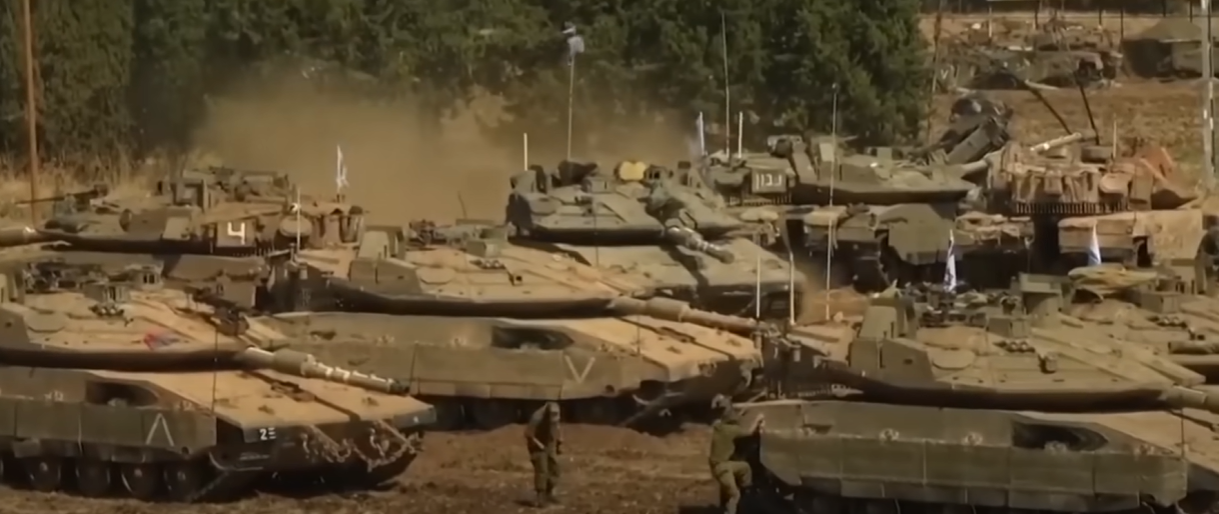
The recent escalation of tensions between Israel and Iran has once again brought the Middle East into the spotlight. The conflict, which involves deep-rooted political, military, and religious issues, could have long-lasting consequences for not only Israel and its neighboring countries but also for global players like India. In this detailed analysis, we will explore the current situation in Israel following the attacks, Israel’s strategic response, and how this could ripple across borders to affect India in areas such as oil prices, diplomacy, and the Indian diaspora.
Current Situation in Israel: A State of High Alert
Following the latest attacks, Israel finds itself in a state of heightened vigilance. Historically, Israel has been quick to respond to any military threat, given its precarious position in the Middle East. This time is no different, with its security forces and military gearing up for potential further escalation. The Israeli government has placed its intelligence and security agencies on high alert, implementing rigorous defense measures to ensure the safety of its citizens. This includes air defense systems like the Iron Dome, which is known for intercepting rockets and missiles, being activated across the country.
Additionally, Israel is intensifying its diplomatic efforts, seeking support from its closest allies, including the United States and European countries. The nation’s leadership is focused on building a strong international coalition to counter Iran’s influence in the region. Israeli Prime Minister and other key officials have engaged in high-level talks to ensure that international pressure is applied on Iran, deterring further aggression.
The Impact of Prolonged Conflict on Israel’s Economy and Society
Military conflicts, particularly those involving continuous rocket and missile attacks, can have severe effects on a country’s economy. Israel is no stranger to such challenges, but the constant state of alert puts a strain on its resources. Defense spending increases substantially, which can divert funds from other critical sectors like healthcare, education, and infrastructure.
Furthermore, the tourism industry in Israel, which is a significant contributor to its economy, suffers during times of conflict. The constant threat of attacks deters international tourists, and the local population’s mobility is restricted, leading to an economic slowdown.
How the Israel-Iran Conflict Affects Global Oil Markets and India
One of the most immediate and concerning effects of increased tensions in the Middle East is on global oil prices. The Middle East remains one of the world’s largest producers of oil, and any instability in this region can cause ripples in global energy markets.
For India, which imports over 80% of its crude oil, fluctuations in global oil prices have a direct impact on its economy. A prolonged conflict between Israel and Iran could disrupt oil supplies, leading to a significant increase in prices. Higher oil prices would not only inflate India’s import bill but also contribute to inflationary pressures within the country, affecting everything from transportation costs to the price of essential goods.
The Indian government would then be faced with tough decisions. Should it absorb the rising costs by providing subsidies to cushion the impact on consumers, or should it pass on the burden to the public, leading to an increase in fuel prices? Both options come with their own set of challenges, as absorbing costs could widen the fiscal deficit, while higher fuel prices could dampen consumer spending and economic growth.
Diplomatic Tightrope: Balancing Relations with Israel and Iran
India maintains strong diplomatic and economic relations with both Israel and Iran, which places it in a tricky position during heightened tensions between the two. On one hand, India has built a solid defense and technological partnership with Israel over the years. Israel is one of the largest suppliers of advanced military equipment to India, and the two countries collaborate on a wide range of technological innovations, including in agriculture and water management.
On the other hand, Iran is a key partner for India in terms of energy security. Iran has historically been one of India’s largest suppliers of crude oil, and despite international sanctions, India has tried to maintain a working relationship with Tehran. Moreover, India’s strategic investments in Iran’s Chabahar Port are critical for bypassing Pakistan and establishing trade routes to Afghanistan and Central Asia.
In light of this, India finds itself walking a diplomatic tightrope. Any open support for one side could risk alienating the other, which could have long-term consequences for India’s energy security and defense cooperation. As such, India will likely adopt a neutral stance, calling for peace and stability in the region, while trying to protect its own national interests.
Impact on the Indian Diaspora in the Middle East
The Middle East is home to over 9 million Indian expatriates, many of whom work in sectors like construction, healthcare, and services. The safety and security of these workers are paramount for the Indian government. In times of conflict, the Indian diaspora can be particularly vulnerable, especially in countries like the UAE, Saudi Arabia, and Oman, which are geographically close to the epicenter of the conflict.
Should the Israel-Iran conflict spiral into a broader regional war, Indian expatriates may face direct or indirect threats to their safety. In such cases, India would need to undertake massive evacuation efforts, similar to the operations it has carried out in the past during crises in Yemen, Iraq, and Libya. Such operations are logistically complex and require coordination with multiple international agencies.
Moreover, the economic downturn caused by the conflict could result in job losses for many Indians working in the region. The remittances sent back home by these workers are a significant source of income for many families in India, and any disruption to this flow of funds would have a ripple effect on the Indian economy.
Conclusion: Navigating a Complex Geopolitical Landscape
The ongoing conflict between Israel and Iran is not just a localized issue but one that could have widespread implications for global markets, diplomacy, and security. For India, the situation presents multiple challenges. The potential disruption in oil supplies and the economic consequences of rising prices are immediate concerns. Additionally, India’s need to maintain good relations with both Israel and Iran puts it in a diplomatically delicate position.
At the same time, the safety of the Indian diaspora in the Middle East will remain a top priority for the Indian government, especially if the conflict escalates. India’s ability to navigate this complex geopolitical landscape will be crucial in safeguarding its national interests, maintaining regional stability, and ensuring the well-being of its citizens abroad. In the coming weeks and months, India will likely continue to advocate for peaceful solutions while preparing for any potential fallout from the conflict.

Average Rating